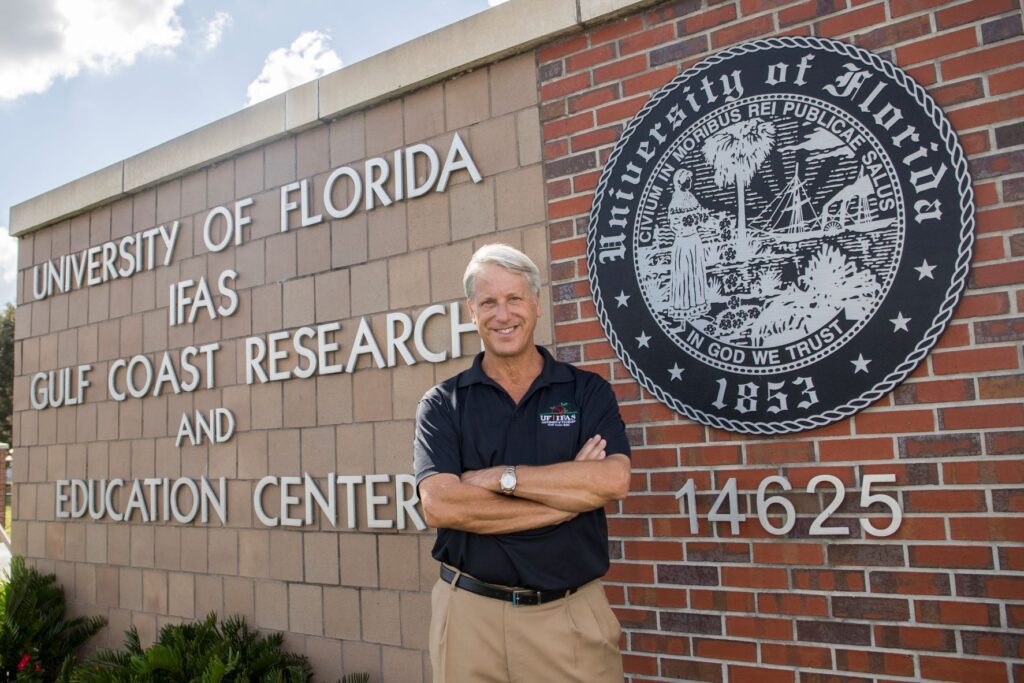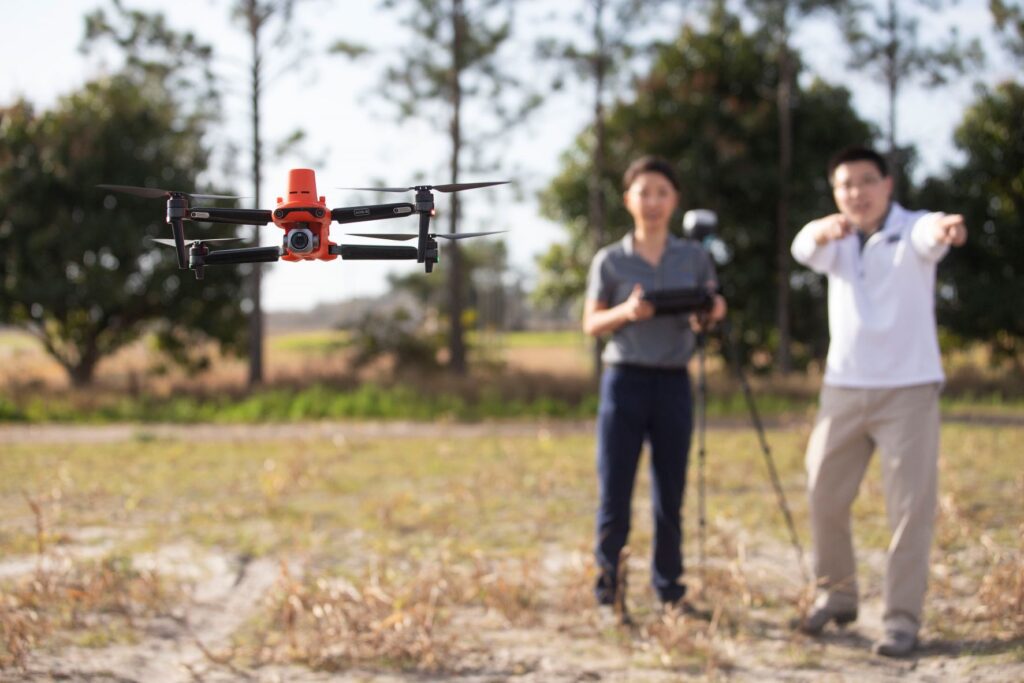AI Center to Provide a Boost for Agriculture
by BRAD BUCK, UF/IFAS correspondent
Agriculture is an integral part of Florida’s economy, directly contributing more than $10 billion in sales revenues annually and supporting more than 133,000 jobs. But farmers face numerous challenges: pests, diseases, labor, rising costs, and more.
To protect crop yields and the environment, the University of Florida Institute of Food and Agricultural Sciences is increasingly leveraging powerful tools such as technology driven by artificial intelligence (AI).
In an effort to expedite such development, UF/IFAS will build a 19,000-square-foot AI hub at the Gulf Coast Research and Education Center (GCREC) in Balm, about 25 miles southeast of Tampa.
The Center for Applied Artificial Intelligence in Agriculture, as it’s now known, will serve as a world-class research, Extension and development facility.
“The center will be our most important facilities investment in a generation,” says Scott Angle, senior vice president of agriculture and natural resources and the administrative leader of UF/IFAS. “It will add momentum to a movement. It will be a declaration that Florida’s farmers are in the vanguard of feeding the world in a more sustainable way and the epicenter of accelerated evolution of agriculture from human-labor-intensive to technology driven.”
AI and robotics can autonomously accomplish many tasks that traditionally require manual labor. By developing these technologies, AI can increase the number of technology-driven, competitive-paying jobs on the farm.
Another advantage: Applying AI to challenging problems often leads to start-up companies that could benefit Florida’s economy.
“Companies in other states may want to join us,” notes Angle.
At the hub, AI scientists will work with researchers throughout UF/IFAS to study ways to breed plants that resist pests and disease, thus boosting crop yields for farmers. These AI scientists also will work to help ensure growers use fewer chemicals to grow their crops.
Center Director Jack Rechcigl and his associate director, Nathan Boyd, have been planning the AI hub for well over a year.
Plans call for a state-of-the art research shop, equipped with everything needed to design and build robotic technologies for agriculture.
The hub also will include office space, as well as areas designed to encourage conversations to build teams for AI research and Extension. Those discussions are critical. Center-based faculty will develop technologies for many Floridians, whether they work in agriculture or other economic sectors.
Rechcigl estimates the center will directly employ 65 people, including computer scientists, mechanical engineers, electrical engineers, AI specialists, graduate students and support staff.
Economic benefits for Hillsborough and Manatee counties from the center include:
- AI will improve agricultural production and lead to more technology-focused jobs.
- New research and teaching faculty.
- Resources and expertise needed to support tech start-ups that will draw new industries into Florida.
- Training programs for farmers, students, and the public.
“The economic impact will be widespread,” Rechcigl says. “The center will strengthen the agricultural industry but will also support current manufacturing industries and the formation of start-up entities focused on AI-based and robotic technologies.”
He cited a similar center in Boston that played a pivotal role in forming 120 robotic companies and many new jobs.
Hillsborough County has already pledged $1.5 million to the center. The UF/IFAS advancement team is seeking private support and backing from other sources.
UF/IFAS is a leader in the university-wide AI initiative. The institute has hired 15 faculty members in the past year or so who study and conduct outreach on how AI can help improve technology for agriculture and natural resources. The University of Florida also has the fastest AI computer in U.S. academia, a gift from NVIDIA.
GCREC already has a head start on hiring AI faculty for the center. In the past year, Kevin Wang and Dana Choi both joined GCREC as assistant professors of agricultural and biological engineering. Wang helps plant breeders statewide, while Choi is working with farmers to help them grow while preserving the environment.
Research by Wang, Choi and other AI scientists at UF/IFAS will help keep farmers in business.
“The survival of our agricultural industries like fruit and vegetable production depends on the development of new technologies utilizing AI to assist growers in production,” Rechcigl says.





